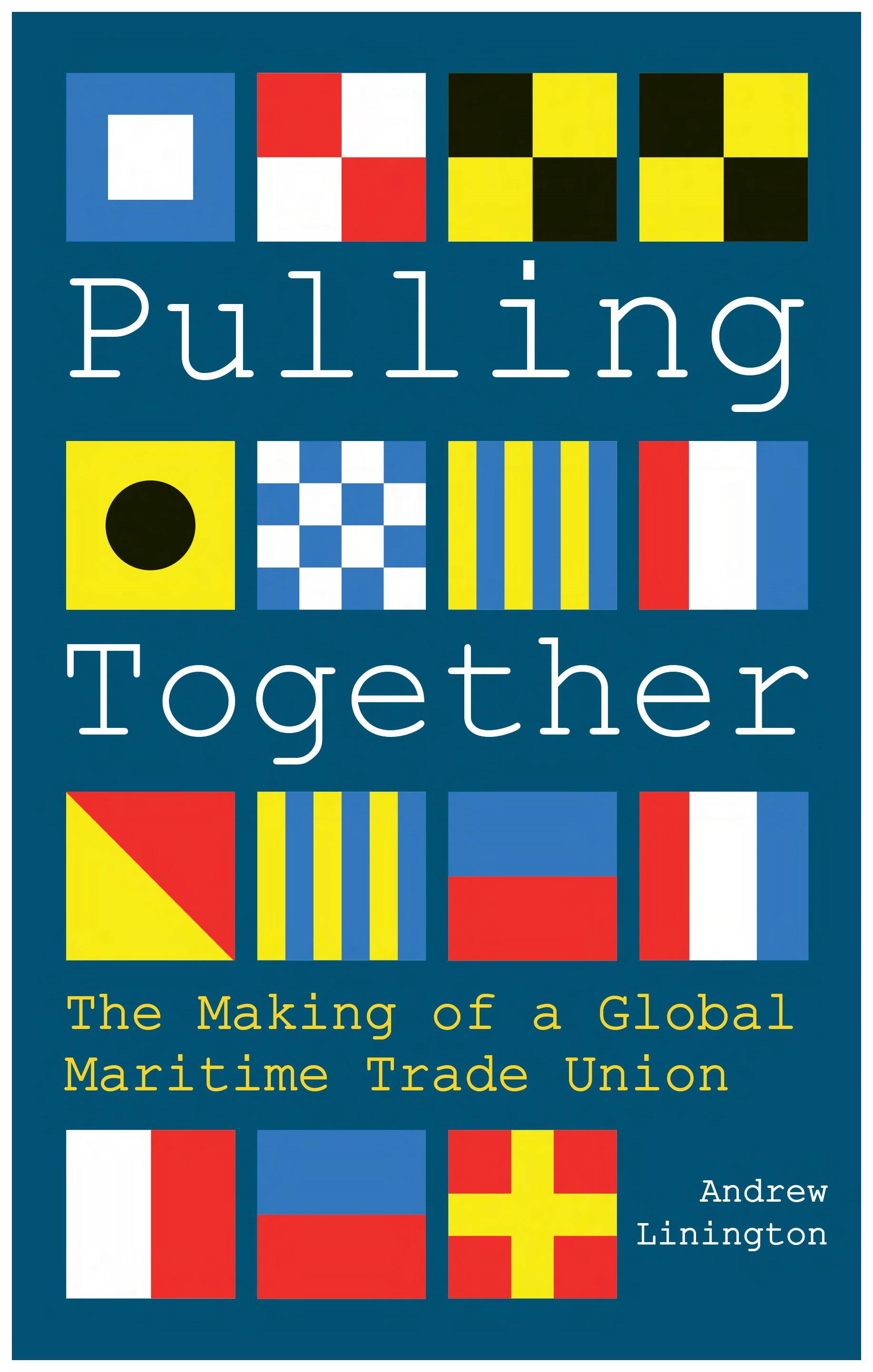The incredible history of Nautilus
Pulling Together: The Making of a Global Maritime Trade Union, by Andrew Linington
 If ever a line of work needed a trade union, it's seafaring. Deaths and injuries at sea still compare unfavourably with shore-based jobs, but things have improved greatly since the early 19th century – and that's thanks largely to the actions of unions.
If ever a line of work needed a trade union, it's seafaring. Deaths and injuries at sea still compare unfavourably with shore-based jobs, but things have improved greatly since the early 19th century – and that's thanks largely to the actions of unions.
Safety laws and training standards have gradually been introduced, and welfare provision has been made for seafarers' families and retired mariners.
These weren't 'top down' changes, explains author Andrew Linington; they originated from a maritime community determined to improve the lives of working people.
In his new book Pulling Together, Linington charts the origins of a movement to organise and professionalise maritime workers in three countries, culminating in the formation of the transboundary union known today as Nautilus International.
It's a complex picture involving the establishment and merger of an array of associations and unions over two centuries. Nautilus members are often familiar with predecessor unions such as NUMAST in the UK and FWZ in the Netherlands, but Pulling Together covers a much wider range of maritime organisations.
The parade of acronyms and abbreviations in this story can sometimes be bewildering, but in this well-presented illustrated history, Linington does a good job of teasing out the reasons why each organisation was founded and what its main achievements were.
Today we are used to the idea that all seafarers can be part of the same trade union: it's what helps to give us strength in numbers. But the idea that navigation officers, marine engineers, radio officers, electrotechnical officers and ratings essentially have a career in common is a relatively new one. In the 19th century and early 20th century, separate associations sprung up to further the interests of particular maritime workers – often as new jobs came into being.
When these new professions organised themselves into unions and associations, they won rights and respect for their members. For example, in the UK, the Radio Officers' Union (ROU) 'fought hard to … head off shipowners' repeated attempts to reduce radio officer carriage requirements for ships under certain tonnage thresholds'. The union also 'secured a major victory [in 1964] with the adoption of a model worldwide training syllabus for radio officers.'
Whether or not we were once members of the ROU, we can look back proudly on achievements like these, which formed the foundations for the work Nautilus International does now on behalf of all maritime professionals. This is the powerful message that radiates from Pulling Together: we are one maritime community and we have an exceptionally strong tradition of activism to build on.
- Pulling Together is being serialised in the Nautilus Telegraph magazine throughout 2024
Pulling Together: The Making of a Global Maritime Trade Union
By Andrew Linington
Whittles Publishing, £19.99
ISBN: 978 18499 55737
Book review landing page image: author Andrew Linington with the Nautilus International history book Pulling Together. Credit: Brad Wakefield
Buy this book in the Nautilus Bookshop
While you're there, why not browse the rest of the titles in our unique maritime bookshop, which sells all the books reviewed on these pages.
Buy nowMore Books
How to 'make it' in the superyacht industry
Superyacht Success, by Brendan O'ShannassyBack in 2022, we reviewed Brendan O'Shannassy's memoir Superyacht Captain. Now Capt O'Shannassy has returned with a new book that focuses on how crew can navigate their careers.
Love for seafaring conquers all
No Quitting, by Andrea BarkerAndrea Barker's memoir of her 1990s Merchant Navy cadetship tells of her eagerness and determination to follow the career pursued by generations of her family. Unfortunately, there were choppy waters ahead...
Radio revelry
Barques, Sparks and Sharks, by Len WilsonSeafarers are known for their story-telling abilities, and Orkney-born Len Wilson does not disappoint in this memoir of his years as a radio officer
Mastering our harbours
Harbours and Their Masters, by Mark Ashley-MillerNovice skipper Mark Ashley-Miller recently spent five years circumnavigating the UK and Ireland as a charity challenge – interviewing and photographing the harbour masters he met along the way.
